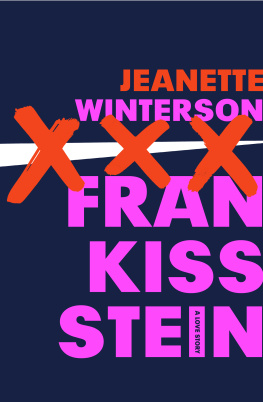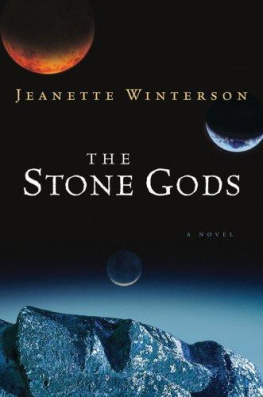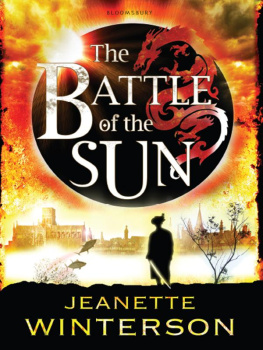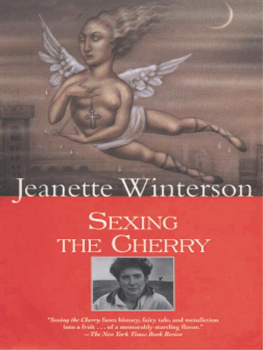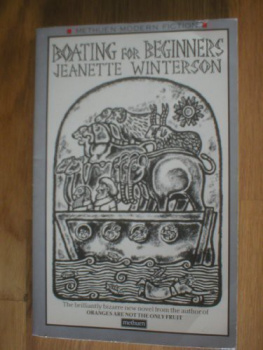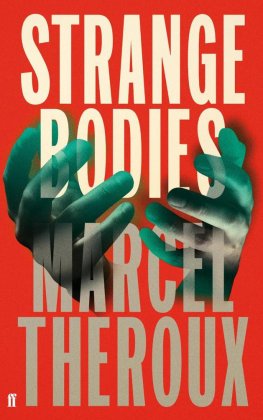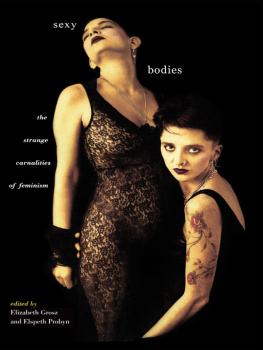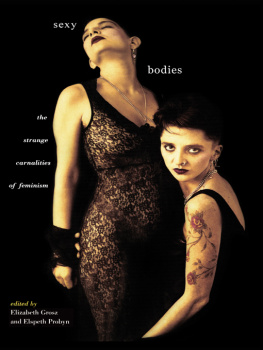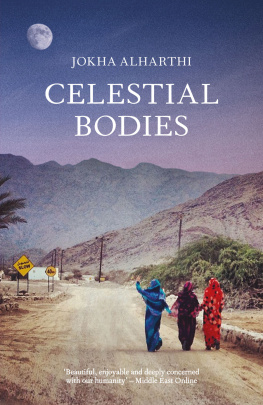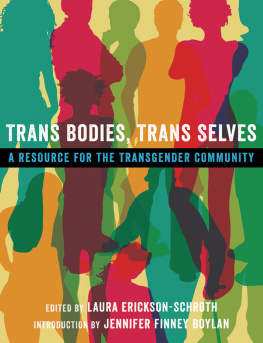


CONTENTS
ABOUT THE AUTHOR
Jeanette Winterson CBE was born in Manchester. Adopted by Pentecostal parents she was raised to be a missionary. This did and didnt work out.
Discovering early the power of books she left home at 16 to live in a Mini and get on with her education. After graduating from Oxford University she worked for a while in the theatre and published her first novel at 25. Oranges Are Not The Only Fruit is based on her own upbringing but using herself as a fictional character. She scripted the novel into a BAFTA-winning BBC drama. 27 years later she re-visited that material in the bestselling memoir Why Be Happy When You Could Be Normal? She has written 10 novels for adults, as well as childrens books, non-fiction and screenplays. She is Professor of New Writing at the University of Manchester. She lives in the Cotswolds in a wood and in Spitalfields, London.
She believes that art is for everyone and it is her mission to prove it.
B y the same author
N ovels
Oranges Are Not The Only Fruit
The Passion
Sexing the Cherry
Written on the Body
Art & Lies
Gut Symmetries
The Powerbook
Lighthousekeeping
The Stone Gods
The Gap of Time
C omic Books
Boating for Beginners
S hort S tories
The World and Other Places
Midsummer Nights (ed.)
Christmas Days
N ovellas
Weight (Myth)
The Daylight Gate (Horror)
N on-fiction
Art Objects: Essays in Ecstasy and Effrontery
Why Be Happy When You Could Be Normal?
Courage Calls to Courage Everywhere
C ollaborations
Land (with Antony Gormley and Clare Richardson)
C hildren s books
Tanglewreck
The Lion, the Unicorn and Me
The King of Capri
The Battle of the Sun
We may lose and we may win though we will never be here again.
Eagles, Take It Easy
Lake Geneva, 1816
Reality is water-soluble.
What we could see, the rocks, the shore, the trees, the boats on the lake, had lost their usual definition and blurred into the long grey of a weeks rain. Even the house, that we fancied was made of stone, wavered inside a heavy mist and through that mist, sometimes, a door or a window appeared like an image in a dream.
Every solid thing had dissolved into its watery equivalent.
Our clothes did not dry. When we came in, and we must come in, because we must go out, we brought the weather with us. Waterlogged leather. Wool that stank of sheep.
There is mould on my underclothes.
This morning I had the idea to walk naked. What is the use of sodden cloth? Of covered buttons so swollen in their buttonholes that I had to be cut out of my dress yesterday?
This morning my bed was as wet as if I had sweated all night. The windows were misty with my own breath. Where the fire burned in the grate the wood hissed like a dejection of nature. I left you sleeping and I trod silently down the filmy stairs, my feet wet.
Naked.
I opened the main door to the house. The rain continued, steady and indifferent. For seven days now it had fallen, not faster, not slower, not increasing, not abating. The earth could swallow no more and the ground everywhere was spongy the gravel paths oozed water, and several springs had burst through the orderly garden, eroding soil that deposited itself in thick black puddles at our gate.
But this morning it was behind the house I went, higher up the slope, hoping for a break in the clouds, where I might see the lake that lay below us.
As I climbed, I reflected on what it must have been for our ancestors, without fire, often without shelter, wandering in nature, so beautiful and bountiful, but so pitiless in her effects. I reflected that without language, or before language, the mind cannot comfort itself.
And yet it is the language of our thoughts that tortures us more than any excess or deprivation of nature.
What would it be like nay, what would it be? There is no like, no likeness to this question. What would it be, to be a being without language not an animal, but something nearer to myself?
Here I am, in my inadequate skin, goose-fleshed and shivering. A poor specimen of a creature, with no nose of a dog, and no speed of a horse, and no wings like the invisible buzzards whose cries I hear above me like lost souls, and no fins or even a mermaids tail for this wrung-out weather. I am not as well-found as that dormouse disappearing into a crack in the rock. I am a poor specimen of a creature, except that I can think.
In London I was not so content as I am here on the lake and in the Alps, where there is solitude for the mind. London is perpetual; a constant streaming present hurrying towards a receding future. Here, where time is neither so crammed nor so scarce, I fancy, anything might happen, anything is possible.
The world is at the start of something new. We are the shaping spirits of our destiny. And though I am not an inventor of machines I am an inventor of dreams.
Yet I wish I had a cat.
I am now above the roofline of the house, the chimneys poking through the damp cloth of steaming rain like the ears of a giant animal. My skin is covered in beads of clear water as though I have been embroidered with water. There is something fine about my decorated nakedness. My nipples are like the teats of a rain-god. My pubic hair, always thick, teems like a dark shoal. The rain increases steady as a waterfall and me inside it. My eyelids are drenched. Im wiping my eyeballs with my fists.
Shakespeare. He coined that word: eyeball. What play is it in? Eyeball?
Crush this herb into Lysanders eye
Whose liquor hath this virtuous property
And make his eye-balls roll with wonted sight.
Then I see it. I think I see it. What do I seem to see?
A figure, gigantic, ragged, moving swiftly on the rocks above me, climbing away from me, his back turned to me, his movements sure, and at the same time hesitant, like a young dog whose paws are too big for him. I thought to call out but I confess I was afraid.
And then the vision was gone.
Surely, I thought, if it is some traveller who has lost his way he will find our villa. But he was climbing away, as though he had found the villa already and passed on.
Troubled that I had indeed seen a figure, equally troubled that I had imagined him, I made my return to the house. I crept in softly, this time through a side door, and, shivering with cold, I made my way up the curve of the staircase.
My husband stood on the landing. I approached him, naked as Eve, and I saw the man of him stir beneath the apron of his shirt.
I was out walking, I said.
Naked? he said.
Yes, I said.
He put out his hand and touched my face.
What is your substance, whereof are you made, That millions of strange shadows on you tend?
We were all around the fire that night, the room more shadows than light, for we had few candles, and none could be fetched until the weather bettered.
Next page
